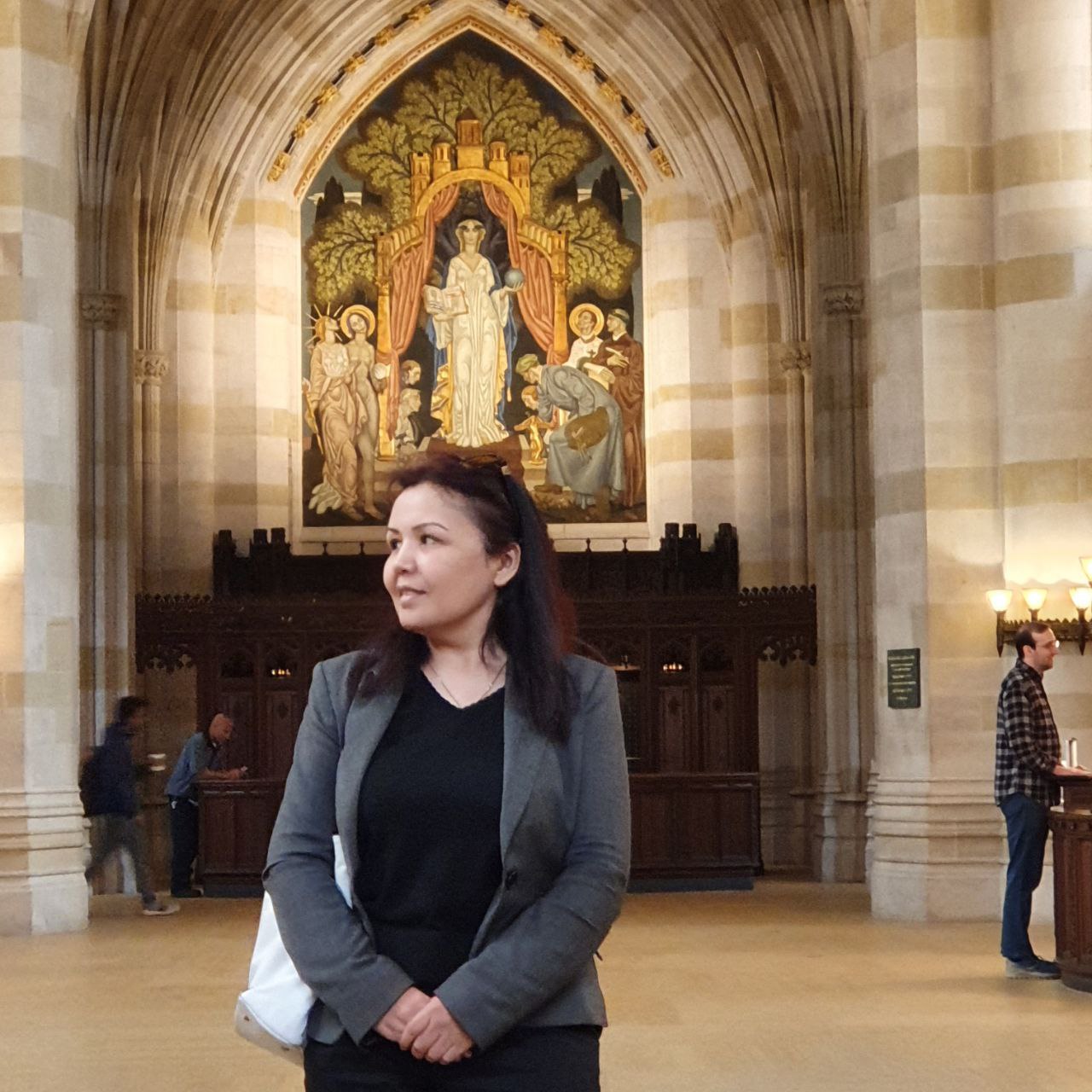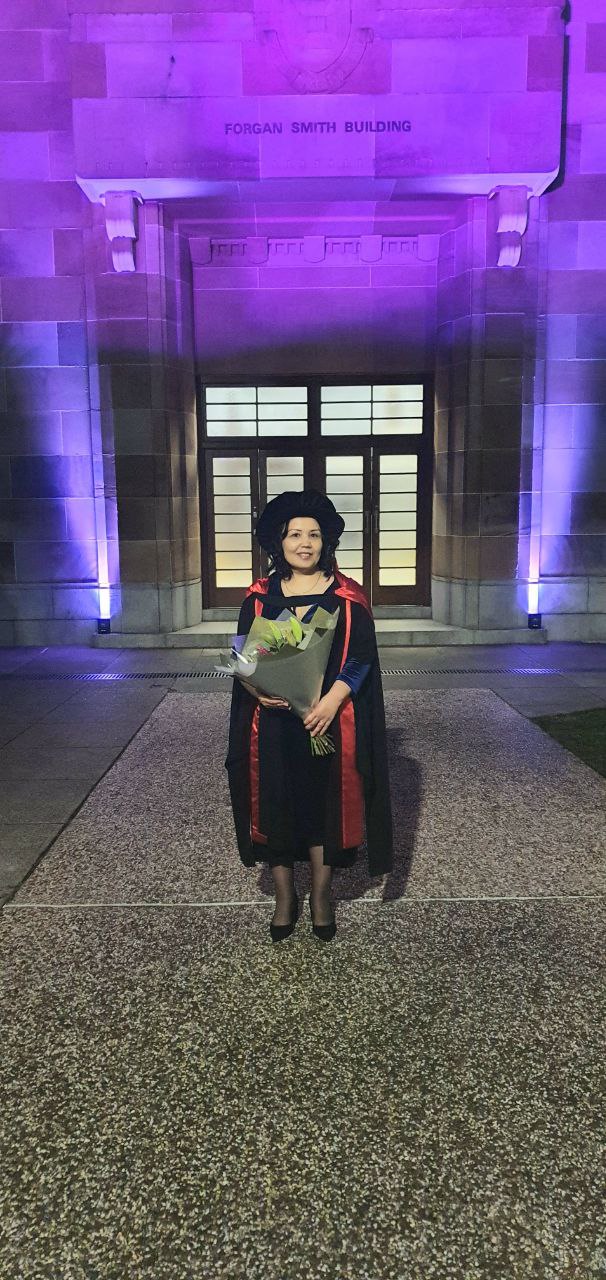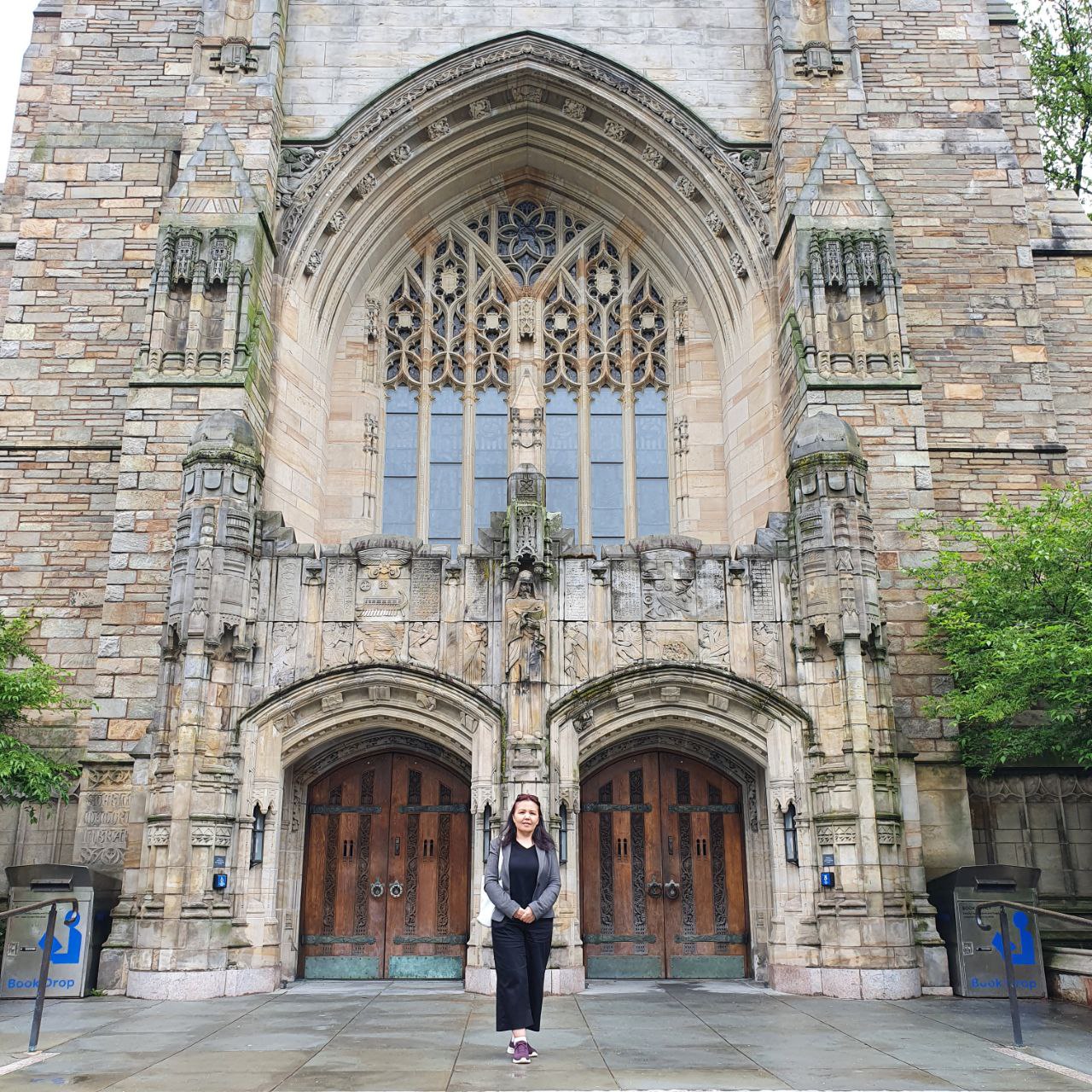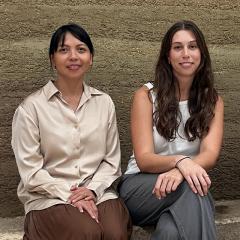UQ PhD graduate Dr Dilrabo Tosheva has been granted a prestigious Fellowship with Harvard University’s Aga Khan Program for Islamic Architecture (AKPIA). The esteemed appointment is to conduct advanced historical research in Islamic art, architecture, material culture and archaeology, and will allow Dr Tosheva to complete a book she is writing based on her UQ PhD thesis.

The 12-month Fellowship for the 2024–2025 academic year comes after Dr Tosheva’s selection in 2023 as the inaugural Postdoctoral Associate in Central Asian Studies at Yale University, where she is currently a lecturer and researcher.
With unique interdisciplinary education that embraces art, architecture and history, Dr Tosheva is excited to learn from leading scholars in the field of Islamic art and architectural history during her time at Harvard University.
“[I applied] for this opportunity for the last two years, but it was highly competitive,” Dr Tosheva says.
“The field of Islamic art history is well established with its own journals, annual conferences and prominent scholars, most of whom are based at Harvard and Massachusetts Institute of Technology.
“This opportunity gives me a chance to better position my work and get mentorship from the leading scholars in the field such as David Roxburgh, Gülru Necipoğlu and Nasser Rabat.”
Dr Tosheva completed her PhD in the UQ School of Architecture, Design and Planning in 2022, with her thesis titled Making the Islamic Facade: Transformation in the Funerary Structures of Central Asia in the Tenth and Eleventh Centuries. With earlier bachelor’s and master’s degrees in history obtained in Uzbekistan and further master’s qualifications in architecture obtained in the US, she describes herself as an historian of ancient and medieval art, architecture and visual culture, specialising in the artistic production of Eurasia, Turkic and Persian cultural spheres, and so-called Silk Roads.

The book she is writing explores the multipolarity of influences on medieval Central Asian architecture.
“I am hoping to make several important interventions in the study of the history of Central Asian architecture. This includes presenting a multicentric view of Central Asian architecture in which architectural forms and styles developed within a complex environment containing influences from multiple directions and cultures,” Dr Tosheva says.
“My research goes beyond cataloging monuments and stylistic changes and instead situates these developments within a historical and cultural context.
“Hopefully my narrative will encourage medievalists and architectural historians to look more broadly across the Central Asian region, without falling into the trap of overly simplistic typicalising.”
After completing her PhD at UQ in 2022, Dr Tosheva taught as an adjunct faculty member. She says one of the most valuable experiences she had at UQ was encountering a culture with more than 40,000 years of history.
“This immediately humbles one and shifts the perception of the ‘greatness’ or ‘ancientness’ of their own culture – a mindset shared by many students I met during my PhD journey,” Dr Tosheva says.
Dr Tosheva thanked her advisers, Dr Catherine Keys, Professor Paul Memmott and Dr Amelia Brown from The University of Queensland, and Professor Alison Betts from The University of Sydney, for their unwavering support and guidance.

Images supplied by Dr Dilrabo Tosheva.



